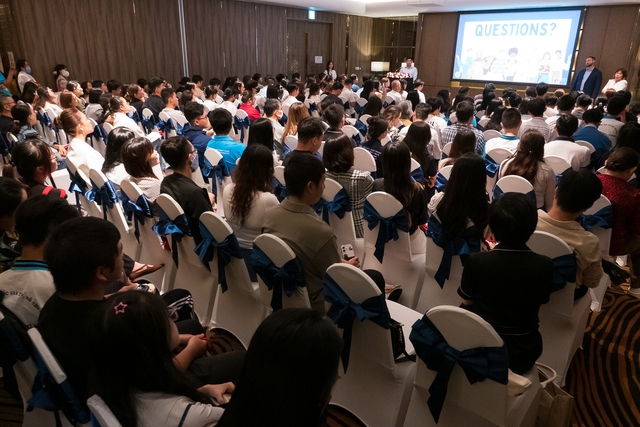
Many parents and students listen to consular officers inform them about the process of applying for a US student visa.
PHOTO: NGOC LONG
Purpose of social media review
A few days ago, the US Education Office (US Consulate General in Ho Chi Minh City) organized the US education fair for the fall of 2025, on the occasion of colleges and universities in the US starting to enroll students for the 2026-2027 school year. Within the framework of the event, more than a hundred people attended a session on how to apply for a US student visa chaired by a consular officer at the US Consulate General, in the context that the country has updated many related regulations in recent months.
One regulation that received a lot of attention from attendees was declaring personal social networks when filling out the DS-160 form (student visa application - PV). "Filling in your social network information in the application is very important," the consular officer emphasized, while also noting that applicants should list all social network accounts they are using and turn them on public so that the consular officer can check.
"We hope you will fill in the URL or link to your social media page instead of just writing your username, as there may be cases of duplicate names," he advised.
When asked about how an applicant’s social media is considered during the application review process and what to look for, the consular officer said the purpose of the review is to determine whether the applicant has any intention of causing harm to the United States. In addition, this also helps assess whether the applicant plans to use the visa for its intended purpose, which in this case is to study in the United States, according to the consular officer.
"So, please declare honestly," he recommended.
One parent raised the issue that her son was on social media but had not posted anything. Would this cause the consular officer to “fail” the applicant’s application? “We evaluate each individual case,” the consular officer replied, but also noted that it would be “rather strange” for a non-child applicant to have no photos posted online.
"In this case, I can think you are hiding something," he shared.
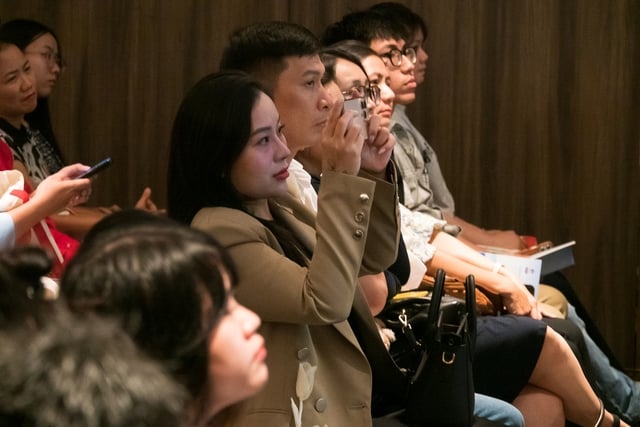
How to declare social networks when applying for a US student visa is a question many people ask.
PHOTO: NGOC LONG
One participant asked if the U.S. diplomatic mission issued a list of social media sites that applicants should not follow. “Not currently,” the consular officer replied, adding that it would not consider which sports teams or entertainment topics applicants liked, but would only be concerned if applicants posted extremist content such as anti-American slogans or had any signs of being affiliated with terrorist organizations.
What else should I note when applying for a US student visa?
A new regulation has been announced by a US consular officer regarding the location of the interview appointment for a US student visa. Accordingly, applicants who want to apply for a US student visa need to make an appointment at the embassy or consulate in the country that granted them citizenship or permanent residency (green card). If they intentionally register for an interview in a third country, they will likely be denied a visa, according to information posted on the US State Department 's website.
At the sharing session, consular officers also warned applicants not to believe completely false rumors about US student visas, such as there is a limit on the number of visas issued to Vietnamese students, having to pay a study abroad company to get a visa, or parents having to have an income that reaches a certain threshold for their children to be granted a student visa... "This is all false information," the consular officer emphasized.
This person added that during the student visa interview, officers focus on clarifying two main issues: whether the applicant has enough financial capacity to pay for the program and whether the applicant is actually coming to the US to study. "If you can prove these two things, you will have a high chance of being granted a student visa," he said.
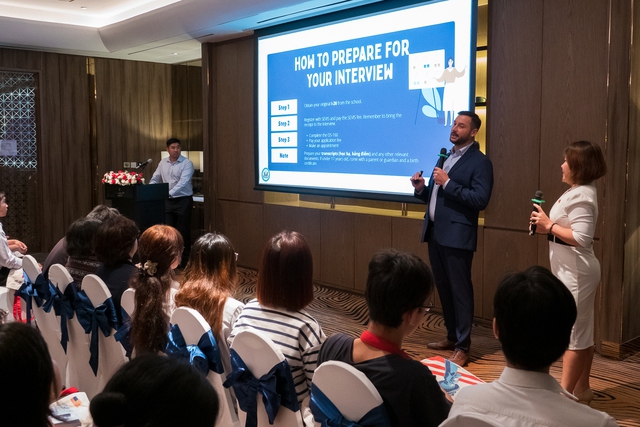
According to consular officials, applicants will be granted a visa if they can demonstrate that they have a serious intention to study and have the financial capacity to cover their living expenses in the US.
PHOTO: NGOC LONG
Previously, the US visa had two important changes. First, it required most non-immigrant visa applicants, including those under 14 and over 79 years old, to have an in-person interview with a consular officer unless they were applying for a diplomatic or official visa. Second, from October, the US will require visa applicants to pay an additional "integrity fee", roughly understood as a "deposit" to commit to complying with visa conditions, of 250 USD (6.6 million VND).
The two new regulations apply to all countries in the world, including Vietnam.
According to statistics from the US Immigration and Customs Enforcement (ICE), in 2024, a total of 36,176 Vietnamese people studied in the US, ranking 6th in the number of international students and continuing to grow since Covid-19. However, if considering the number of students in kindergarten to grade 12 (K-12) schools, Vietnam ranked second with 4,252 people, just behind China. In the 2023-2024 school year alone, Vietnamese international students contributed more than 1 billion USD to the US economy, according to the US Consulate General.
Source: https://thanhnien.vn/xin-visa-du-hoc-my-vien-chuc-lanh-su-dan-gi-khi-dien-mang-xa-hoi-18525092810523566.htm


![[Photo] Binh Trieu 1 Bridge has been completed, raised by 1.1m, and will open to traffic at the end of November.](https://vphoto.vietnam.vn/thumb/1200x675/vietnam/resource/IMAGE/2025/10/2/a6549e2a3b5848a1ba76a1ded6141fae)





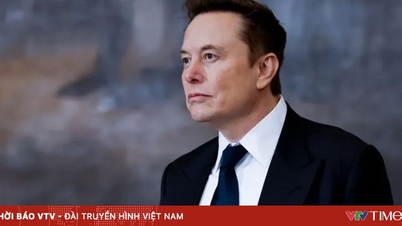

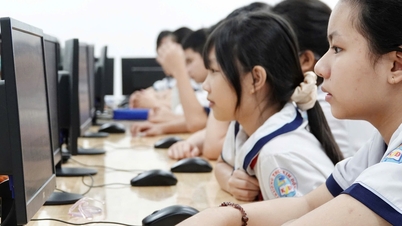





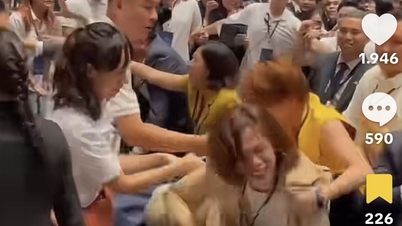



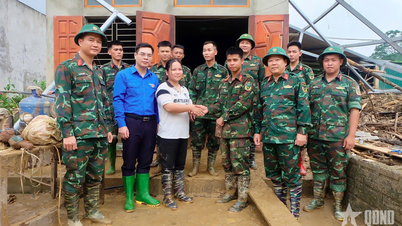

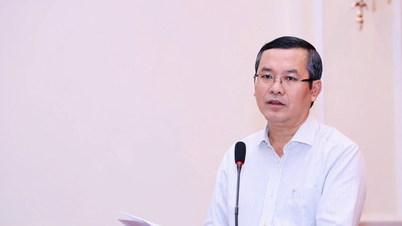



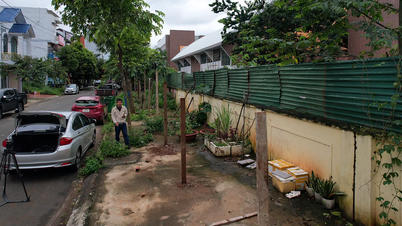




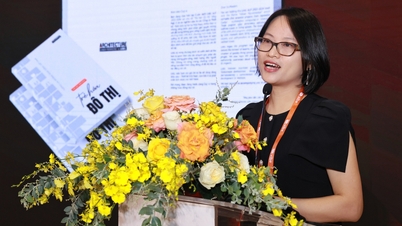

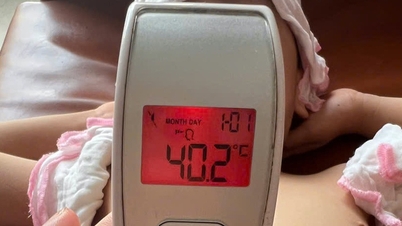
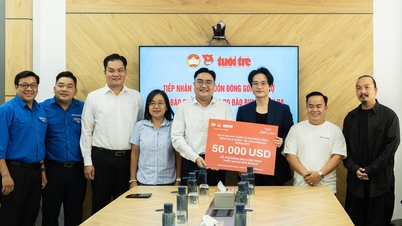
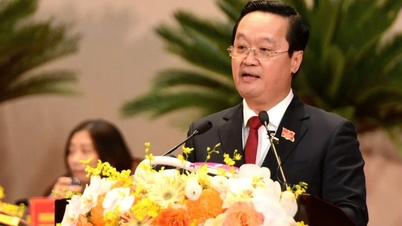
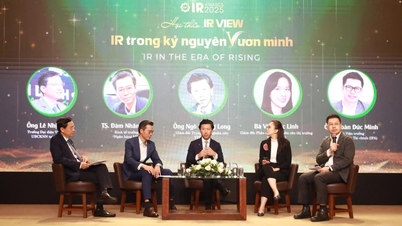












































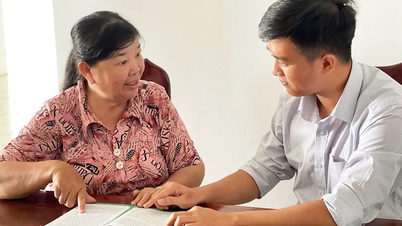



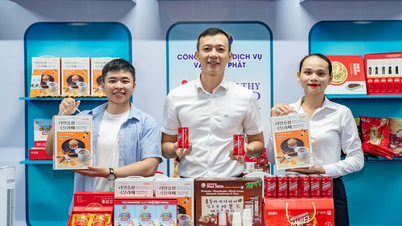

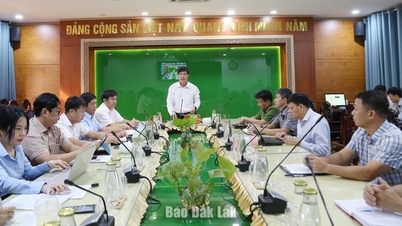

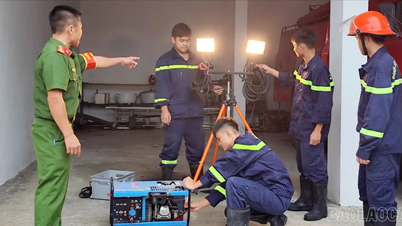

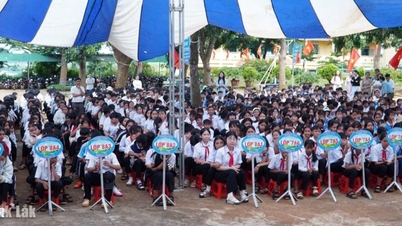












Comment (0)